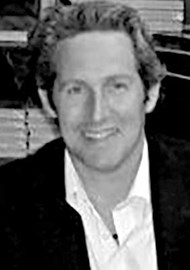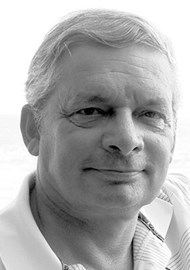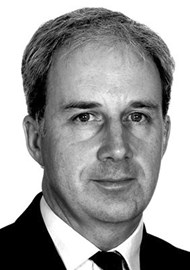Despite over 100 unfilled consultant urological surgeon posts in the UK, the reasons why an established surgeon should wish to move hospitals can still be viewed with suspicion. Why is this the case, when in many other careers, both within and outside healthcare, moving posts is seen as a desirable, healthy and possibly essential part of career progression?
Three experienced urological surgeons give an insight into the challenges and pitfalls of moving mid-career.
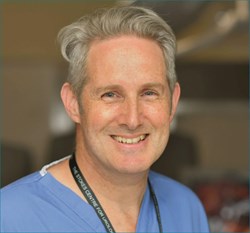
Matthew Perry
Consultant Urological Surgeon, Royal Surrey County Hospital.
St George’s is still in my blood. I started at St George’s Hospital in South London in 1997 and was a research fellow there for two years. I returned as a registrar, locum consultant in June 2005 and was then appointed substantially in December of that year.
Ten years later, I took a call from The Royal Surrey in Guildford and after nearly 11 years at one of the largest hospitals in the UK and having being head of department for five years, I decided to move to a District General Hospital on the side of the A3 in Guildford. I joined the team at The Royal Surrey in April 2016. What could possibly affect this change? The reasons were multiple.
Personal
My children had grown up and two of three were about to leave home, the youngest was about to change schools and start at a senior school. My wife, an orthopaedic surgeon, had been commuting an hour to Frimley Park Hospital from our South London home for 10 years. A move could improve her quality of life, allow us to move further out of London with little disruption to our children.
Professional
I had set up the robotic cystectomy programme at St George’s in 2010 with my colleague Rami Issa. In 2013, I was asked to help set up a programme at The Royal Surrey Hospital and I therefore had some insight into the nature of the department and the changes that I would face. I was offered more robotic surgery with a better work-life balance. The hospital was planning an expansion in robotics and the trust wanted me to be part of it.
Leaving
Is hard to do! Seek advice from friends and colleagues. I had two friends who had also moved hospitals between 10 and 15 years into their consultant careers. Their advice was extremely valuable. I was on very good terms with my colleagues at St George’s so asked the opinion of some of those who had appointed me. Whilst it can be upsetting as relationships change, I would advise being open and honest. One piece of advice was “if you don’t like your job plan, change it but don’t change your hospital.” That is easier said than done with the multiple responsibilities we all take on. Have a party to thank those who have helped in your career thus far. Keep your friends onside.
Arriving
Check your contract. You may have negotiated your salary or PA allocation but don’t sign anything until it is thoroughly checked. My pay was corrected only the week before I started. Check that clinical excellence awards have been transferred. Ensure that the timetable and clinic structure is correct. It is always easier to get these issues sorted out before rather than after starting.
As one colleague described: “you get an email enema” when you move hospital. All those thousands of emails simply disappear. They will reappear in another form, but it does take years for the catch up; perhaps we should move every five years!
In joining a new department as an established consultant, the incumbents should be aware that you may wish to continue in private practice in ‘their’ area. In appointing you, they should have considered this; if not, this is an oversight on their behalf. I would bring it up in the discussions before the job application so that it is mentioned prior to you starting or even applying. Private practice may be an inhibitor to moving in the NHS, the luxury of my particular situation was that in moving 20 miles I was still able to keep my old practice running whilst I set up a new one.
Conclusion
I have found that moving hospital was an extremely rewarding decision. Professionally, I got a ‘bounce’, like a new manager coming into a football team. People expect something of you, so you have to deliver. Personally, the work-life balance has improved with a shorter, easier commute for the two of us and in quieter surroundings. I loved my previous hospital, but am really enjoying my current one.
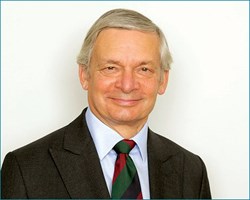
Roland Morley
Consultant Urological Surgeon, Imperial College Healthcare NHS Trust.
I was a consultant urologist at Kingston Hospital for almost 18 years before moving. I did my urological training in Wessex having been in the Royal Navy as a cadet.
I really enjoyed my time at Kingston and was sorry to leave; I had been clinical lead, clinical director and divisional director as well as a director of medical education. I had built up a national reputation in surgery for urinary incontinence and managed to continue to publish as well as being involved in clinical trials. I had been chair of the Section of Female, Neurological & Urodynamic Urology at the British Association of Urologicall Surgeons (BAUS), on the Specialty Advisory Committee (SAC), a BAUS council member, training programme director and STC Chair so a lot is possible from a medium sized District General Hospital. I had built up very good personal and professional friendships with other consultants across many specialities.
Personal
My two oldest children had finished university and the youngest was still there and they all returned home regularly so I was not keen to move away to another area.
Professional
I was approached by Imperial NHS Trust to help develop the gender service with established colleagues already there as another had previously left. This was to be done in combination with my interest in functional and paediatric urology. At that time the NHS was going through a reorganisation (as it always does) with regionalisation of services and this was beginning to happen in functional urology. For me this was a risk long-term as I was likely to lose some of my current practice which I was reticent to do having, I think, proven myself as a safe and capable surgeon. However, moving was going to involve training in gender surgery, and how do you teach an old dog new tricks?! I was going to have to go back to being a trainee again, but a number of older consultants have had to do this with new technology, particularly laparoscopy and robotics. Although a challenge, this was successful, and allowed me to learn new transferable skills. Moving has also allowed me to maintain my own established skills and is going to help me develop my long-term national ambitions particularly with training.
As a senior clinician you need to decide how you wish to work, and as you progress through your career more demands are thrown at you, both surgical and non-surgical, both within the trust and nationally. You need to decide whether any external demands are met by an annualised job plan or a fixed job plan and whether your new trust will consider negotiating this or indeed routinely provides this.
Once you have moved you need to determine whether you wish to take on further non-surgical challenges and commitments. As surgeons we are usually pretty good at delivering but don’t overstretch yourself and consider your work-life balance.
Colleagues
Working in trusts for many years builds up long and lasting relationships and before deciding to move make time to discuss with colleagues and friends, and if you do finally decide to move make every effort to maintain close contact with friends and former colleagues as they are your rock and support. Use them as a bouncing board before making a final decision. Once you have moved you will build up lasting friendships and close colleagues again and, as an experienced consultant, you should always be prepared to support them when needed without being overpowering.
The new trust
You will discover that any trust you work in has its strengths and weakness and that some issues run throughout the NHS. Play to the strengths of the trust and that will hold you in good stead. Moving allows cross fertilisation and new practices to flourish and develop using best examples of practice. Before you start, ensure that the job plan is complete and that clinical excellence awards are transferable.
Final thoughts
Moving trusts / jobs needs to be for the right reasons and you need to consider it very carefully. The opportunity for continuing private practice in your area may also need to be considered in your decision-making together with the needs of family and your work-life balance. It is a team decision if a family is involved. Ultimately, changing can be very rewarding and give you great new opportunities and provide a new stimulus in life.
Staying in one trust is not always seen as lifelong as it was in the past and movement is common in the United States where head hunting for performance and delivery is common.
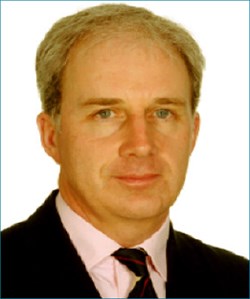
Stephen Keoghane
Consultant Urological Surgeon, Colchester General Hospital.
I was appointed to a consultant post in Portsmouth in 2003 having completed one of the first UK post Certificate of Completion of Surgical Training (CCST) fellowships in endourology; factors that attracted me to the department included the high throughput of complex and highly comorbid patients and my recollections of the city as a young senior house officer.
The close proximity to my Territorial Army regiment based in the south-west of England also played an important role in decision making. Thirteen years were spent in a busy, high-quality department that led to a plethora of publications in the field of endourology and specifically percutaneous nephrolithotomy (PCNL).
A change in domestic circumstances resulted in a necessary move from the south coast of England with its high real estate prices to a much smaller hospital in rural East Anglia and finally a larger split site trust in the same region. What were the challenges?
Firstly, and perhaps most importantly, establishing a reputation as a competent and conscientious clinician is paramount; if you are focused on your NHS work and avoid too much distraction with fee-paying activities, the acknowledgment that you are a safe surgeon will soon become apparent. This does of course presume you are indeed a safe pair of hands.
It is well known to many that newly appointed consultants can run into trouble with surgical complications early in their career; one of the advantages of clinical maturity is being familiar with numerous potential sources of error. The challenge of a new post can, however, be new processes and product brands and the confidence that an equipment item that has always been available is now on the shelf in the new operating theatre. A reputation can now be lost just as quickly; there is no place for a grumpy surgeon nor indeed raised voices but adapt to what is available, compromise and overcome.
The theatre team brief can be a ‘quick win’ and knowing your patient’s past medical history will impress a new multidisciplinary team. An ability to speak confidently without being overbearing is critically important, a trait required during expert witness training in the world of medico-legal medicine.
Be aware the WHO process may be radically different in a new hospital, and I will always recall the look of horror on the operating department practitioner’s face and later overhearing “he did the time out before the patient was draped!”
A theme that will emerge following a move between hospitals is the fact that the United Kingdom does not have a national health service in the truest sense of the word; we have a local and not even a regional health service and variation in IT will very quickly reveal these inequalities. Why we have not learned lessons from other public services that have consistent IT systems will remain a mystery.
I started my career with paper notes, PACS and ICE, evolving to a hybrid system of paper and archived electronic notes and then experienced the joy of a pure electronic patient record (EPR); possibly the most positive change in healthcare in my professional career. For those readers who have yet to see the advantages in efficiency and patient safety, you will, when the NHS is fully digitalised, using I strongly suspect different providers.
Moving from an EPR back to a hybrid and legacy system is difficult and no doubt familiar to rotating trainees; now is not the time to use the words ‘Victorian’ or ‘stone age.’
The frustrations of unfamiliarity will however soon drift away as clinical work takes over; patients are patients regardless of geography but what can now be beneficial is experiencing a session of all aspects of the new department.
I will always recall Hugh Whitfield joining me for the daily ward round when he moved from London to Reading for the last part of his career, at the time he was Editor of the BJU and an international figure in endourology and I was a mere mid-career registrar. An inspiration to my career in endourology and an example of a positive move at consultant level 20 years ago.
A thought to leave the reader; in what other career could you expect a job for life where performance management is almost non-existent? Change, particularly if you are not tied to private practice, offers a breath of fresh air mid-consultant career and although some irritation is inevitable, it allows new ideas to circulate within a department.
Lateral movement is accepted both in industry and the public sector up to CEO level and is more common in Europe and the US; the difference of course being the concept of head hunting high performing individuals.


